Year 9 Options 2024



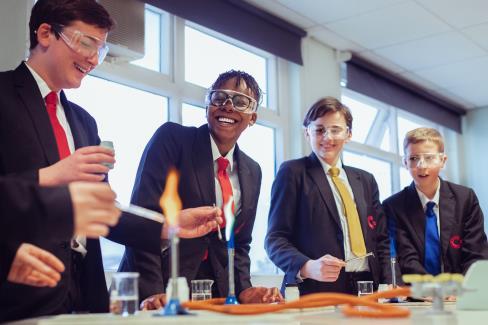




2
Dear pupil,
The purpose of this booklet is to provide you useful information which will help you make informed decisions about which subjects you could study in Years 10 and 11 (Key Stage 4).
The end of Year 9 represents a landmark in your school life as Key Stage 4 study is the point at which you embark on examination courses that will have a large influence on your future. Many of the subjects you will study, will be build on the skills and knowledge acquired during Years 7, 8 and 9, but there will be an opportunity to take up new subjects or specialise in areas where you have shown ability and interest.
This booklet is part of the information gathering process which will help you to make your decision about which options to take. Good choices will help to make the next two years both enjoyable and productive.
It is also important that you realise what you are taking on when starting on courses that lead to GCSE exams. You should think carefully before making your choices.
You will be given as much help and support as possible. There will be revision classes and mock exams as well as many opportunities to talk to teachers about your progress.
Most importantly, it will be down to you. Your success will be determined by your attendance, organisation, hard work and effort with both class and homework.
 Ms J Lilley Assistant Headteacher
Ms J Lilley Assistant Headteacher
3
Key Stage 4 Rationale
English Baccalaureate
The Ebacc is not a qualification in its own right, it is a suite of qualifications.
A child is considered to have achieved the EBacc if they have got ‘good passes’ (currently grade 4 or above) in English, maths, science, history or geography and a language. At CLHS we offer the opportunity for pupils to take these subjects together and encourage pupils to access a broad and balanced curriculum.
Should my child be taking the EBacc?
We encourage all our pupils to take the subjects which combine to create the Ebacc as it offers a good basis to build on for later study, for example the languages element helps to improve vocabulary and sentence construction; reinforcing the literacy needed in English, history and geography. It also deepens an understanding of other cultures. Some of the top universities consider EBacc combinations when making offers, and employers understand these subjects and qualifications.



4
How are GCSE’s graded?
From September 2016 a new grading system for nearly all GCSE subjects has replaced A*-G. Instead pupils are awarded grades 9-1. See below for a comparison chart provided by Ofqual:

Previous grading structure
What are vocational qualifications?
These qualifications are particular types of work-related qualifications, available in a wide range of subjects. You can take one if you are interested in learning more about a particular sector or industry. Many have been designed in collaboration with industry, so they can equip you with the skills and knowledge that employers are looking for. The qualifications offer a mix of theory and practice.
Level 2 vocational qualifications are awarded at: Distinction*, Distinction, Merit, Pass
It is also possible to achieve a Level 1 Pass if the Level 2 standard has not been reached.

5
How do you make your decisions?
Before making your option choices you need to think about the following:
• What do you enjoy studying? Two years is a long time to be studying something you don’t really like.
• What are you good at? Speak to your class teacher and house tutor about your options.
• Have you decided on a career path? If so, check out the types of qualifications you may need for that career.
Don’t choose a subject because your friends are doing it, or because you like the teacher (they may not be teaching you!).
How do you tell the school the decisions you have made?
You will receive an options form with this booklet. Please discuss all the options as a family unit and then complete the form.
Whilst we endeavour to ensure all pupils get their first choices, we also ask you to provide us with two reserve choices. This form should be signed by a parent or carer and returned to school by Thursday 21st March 2024.
No news is good news. When the choices are collated, school will then start to process them and you will receive a letter confirming your Year 10 options. Our aim is to give you the subject choices you want. Where possible we will try to ensure that every pupil receives their first choice. However, on rare occasions this may not be possible and you will be offered your reserve choice. If there are any issues with your choices, you will be contacted at the earliest opportunity.

6
What support is there to help with these

At Central Lancaster High School we pride ourselves in the level of support and guidance we offer our pupils. If you have any questions about the options to choose you can ask for guidance from:
Your House Tutor
Ms. Morris, your Head of Year
Ms Louth, our Careers Advisor
Ms Lilley, our Careers Leader
Any subject teacher or Head of Department
Any member of the Senior Leadership Team
We are all here to help you make the right decision!
There are also useful websites to help you make your choices:
http://www.positive-steps.org.uk
http://icould.com
http://nationalcareersservice.direct.gov.uk
http://www.prospects.ac.uk
http://www.creative-choices.co.uk
http://www.connexionslive.com
http://www.learninglinks.co.uk

7
Which subjects are compulsory?
There are some subjects which you must take next year, however as we believe in a balanced curriculum we have tried to give you as much choice as possible. For this reason all pupils must take:
• English Language and English Literature
• Maths
• Combined Science
• One of either -History, Geography, French or Spanish(more than one of these can be opted for)
• Core PE and Life (non-examination subjects)
You will then choose three subjects and two reserves from the following:
Art and Design GCSE
Creative iMedia Vocational
Business and Enterprise Vocational
Design Technology GCSE
French GCSE
Geography GCSE
History GCSE
Hospitality and Catering Vocational
Music GCSE
Religious Studies GCSE
Spanish GCSE
Sports Studies Vocational
Triple Science GCSE

8
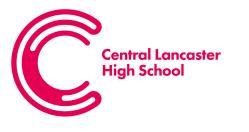
Overview
GCSE English Language
The English Language GCSE will enable pupils to develop their ability to read critically, write effectively and coherently, use grammar correctly and expand their vocabulary.
The course will empower pupils to be able to actively read and question a wide range of text types and to be able to write with fluency and a clear purpose when they leave school.
In English Language, pupils will:
• read a range of different text types from different time periods. This will include both fiction and non-fiction
• respond personally to the texts: considering how the reader is expected to feel
• explore the writer’s intentions: commenting on what they are trying to communicate to the reader and how well they are achieving this
• analyse how a writer has used language and structure to determine meaning
• learn how to write a narrative that is engaging and entertaining
• learn how to write different nonfiction text types that have various audiences and purposes
Method of Assessment
For English Language, pupils will sit two examinations at the end of Y11. Their performance in these exams will determine their overall grade. The exams are:
• Component 1 Exam (40%): 20th century Literature reading and creative prose writing
• Component 2 Exam (60%): 19th and 21st century non-fiction reading and transactional writing.
Pupils will also complete a separate qualification for Spoken Language for which they will complete a formal, individual presentation.
Awarding Body: EDUQAS
Pathways:

Sixth Form study: all A Levels and Level 3 vocational courses will need a ’good pass’ in GCSE English Language.
Careers: all careers will need a ‘good pass’ in English Language.


Overview
GCSE English Literature
The English Literature GCSE encourages pupils to develop knowledge and skills in reading, writing and critical thinking. It provides them with opportunities to read widely for pleasure across a range of high quality texts in the genres of prose, poetry and drama and to develop an understanding of how literature is both rich and influential. It enables pupils to make connections across their reading and to develop a clear understanding of literary works.
In English Literature, pupils will:
• Read a wide range of classic literature fluently and with good understanding
• Read in depth, critically and evaluatively
• Develop the habit of reading widely and often
• Appreciate the depth and power of the English literary heritage
• Acquire and use a wide literary vocabulary to criticise and analyse what they read.
It is beneficial for pupils if they can purchase the set texts which will be studied for examination but they can also be accessed for free online. The texts are: A Christmas Carol, An Inspector Calls and Macbeth.
Method of Assessment
For English Literature, pupils sit two examinations at the end of Y11. Their performance in these exams will determine their overall grade. The exams are:
• Component 1 Exam (40%): Shakespeare and the Poetry Anthology
• Component 2 Exam:(60%) Post 1914 drama, 19th Century Prose and Unseen Poetry.
Awarding Body: EDUQAS
Pathways:
Sixth Form study: A Levels in English Literature, History, Sociology.
Careers:
Education, Philosophy, Law, History.

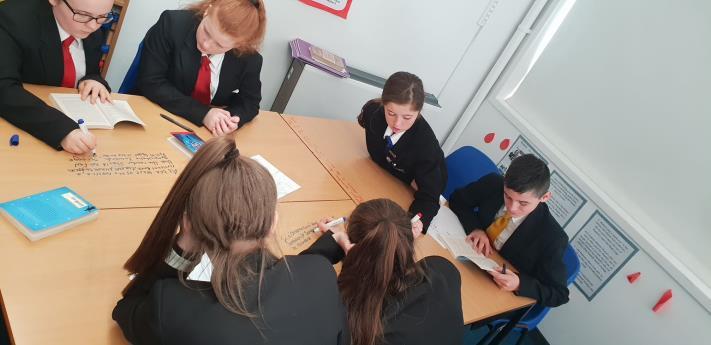
10

Overview
GCSE Mathematics
The Mathematics Department delivers an enriched curriculum that emphasises the development of reasoning and problem solving skills, as well as securing fluency. Our aim is to impart a love and passion for maths and to provide the knowledge, understanding and skills needed for further mathematical study and to make competent life decisions.
What does the course involve?
We aim to provide an appropriate blend of co-operative and independent learning, with pupils given opportunities to articulate their reasoning and develop resilience is solving challenging topics.
Throughout key stage four there remains flexibility to change the tier of entry being followed by individual pupils between the foundation and higher course. This is determined by success in examination style progress assessments.
• The three assessment strands are:
• Use and apply standard techniques.
• Reason, interpret and communicate mathematically.
• Solve problems within mathematics and other contexts.
The main topics in GCSE mathematics are:
• Number
• Algebra
• Shape, Space and Measure
• Data and Probability
• Ratio and Proportion
Method of Assessment
Each pupil will take 3 exams at the end of the course. There is one non-calculator paper and two calculator papers, each worth 80 marks.
There are two tiers of examination entry which allow pupils to achieve the following grades:
Higher: GCSE Grades 4-9
Foundation: GCSE Grades 1-5
Awarding Body: Edexcel
Pathways:
Sixth form study including A’ Level Maths, Science, Economics, Psychology.
Full-time college courses in Engineering.
Careers:
Science, Engineering, Business Management, Accounting, Statistics.


11

Overview
GCSE Combined Science
Science provides the foundation for understanding the material world. Scientific understanding is changing our lives and is vital to the world’s future prosperity. All pupils should learn essential aspects of knowledge, methods, processes and uses of science. Pupils gain appreciation, through practical and theory lessons, of how the complex and diverse phenomena of the natural world can be described in terms of a small number of key ideas.
GCSE Combined Science Trilogy (2 GCSEs)
Combined science will develop scientific knowledge and conceptual understanding through the specific disciplines of biology, chemistry and physics. Pupils will be taught by subject specialists in each area and will have the opportunity to explore different practical investigations and applications of science.
Content covered:
Biology 1:
Cells, organisation, infection and response and bioenergetics.
Biology 2:
Homeostasis, inheritance and ecology.
Chemistry 1:
Atomic structure, bonding, quantitative chemistry, chemical changes and energy changes.
Chemistry 2:
Rates of reaction, organic chemistry, chemical analysis, atmosphere and using resources.
Physics 1:
Energy, electricity, particle model and density, atomic structure and radiation.
Physics 2:
Forces, waves, magnets.
Method of Assessment
Pupils will sit 6 exams in total. There will be 2 for each of the sciences covering the content outlined above.
Each exam is 1 hour and 15 minutes long and at the end pupils will be awarded 2 grades for their combined science course.
Awarding Body: AQA

Pathways: A Levels in any of the scientific subjects, apprenticeships for companies such as BAE systems, EDF Energy, vocational science courses such as environmental science.
Careers: nurse, midwife, mechanical engineer, aeronautical engineer, zookeeper, paramedic, special effects coordinator.
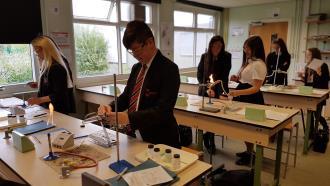
12

GCSE Art and Design
The course has been designed so that pupils develop their skills in a range of materials and processes, including working in 2D and 3D. Pupils will learn how to develop their own response to a theme using research into other artists and experimentation with a range of media.
Pupils will:
• Develop their ideas through investigations informed by contextual and other sources demonstrating analytical and cultural understanding.
• Refine their ideas through experimenting and selecting appropriate resources, media, materials, techniques and processes.
• Record ideas, observations and insights relevant to their intentions in visual and/or other forms.
• Present a personal, informed and meaningful response demonstrating analytical and critical understanding, realising intentions and where appropriate, making connections between visual, written, oral or other elements.
Pupils are not required to have any specialist equipment of their own. However, for some projects it is expected that they will source appropriate materials. It is expected that pupils spend at least one hour a week in the art studios either after school or at lunchtime.
Method of Assessment
For the GCSE course pupils will need to submit a portfolio of work containing at least one extended project. This is worth 60% of the final grade.
They are also required to complete an Externally Set Assignment which culminates in a 10 hour controlled test in the Spring term of year 11. This is worth 40% of the final grade.
Awarding Body: AQA
Pathways:
Sixth form study including A’ Level Art and Design or Level 3 BTEC Art and Design. Full-time college courses in Art and Design.
Careers:
Product design, architecture, game design, art therapy and make-up artistry.



13

Overview
Cambridge National Certificate in Creative iMedia
Pupils will develop a wide range of skills across a variety of units using industry standard software including the Serif suite, Construct and a wide range of web based applications to design, create and evaluate digital products. This course will encourage you to think creatively, innovatively, analytically, logically and critically and well as develop independence and confidence in using skills that would be relevant to the media industry and more widely in the world of work. The course involves three units:
Unit 1 - Creative iMedia in the media (Exam)
In this unit you will learn about the media industry, digital media products, how they are planned, and the media codes which are used to convey meaning, create impact and engage audiences. Topics include: the media industry , factors influencing product design , pre-production planning and distribution considerations.
Unit 2 - Visual identity and digital graphics (Coursework)
In this unit you will learn to how to develop visual identities for clients and use the concepts of graphic design to create original digital graphics to engage target audiences. Topics include: develop visual identity , plan digital graphics for products , create visual identity and digital graphics.
Unit R099: Digital games (coursework)
In this unit you will learn how to plan, create and review digital games. Topics include: plan digital games, create digital games and review digital games.
Method of Assessment
Unit 1 will be externally assessed via controlled assessment. (Exam)
The remaining units are coursework based and assessed as you progress through each task. You will be given an opportunity to improve your work once you have submitted it. 25% exam, 75% coursework. Units are graded Pass, Merit, Distinction and Distinction*
Awarding Body: OCR
Pathways:
Computing courses in web design, programming, game design and graphics at 6th form or college. Apprentices at web design or creative media industries such as Fat Media or Hot Foot Web Design in Lancaster.

Careers: Web design, game design, creative industries.

14

Overview
Level 1/Level 2 Tech Award in Business and Enterprise
This course is designed to cover a wide range of business topics. You will learn how to set up and survive in business, how to pick the ideal location for your business and look at several different case studies to better understand why some businesses work and others fail. You will also study how the internet has changed the way that many businesses operate and have a chance to plan and run a micro enterprise activity of your own.
The course involves three units:
Component 1: Exploring Enterprises (Coursework)
You will develop knowledge and understanding of the characteristics of enterprises and the skills needed by entrepreneurs to be successful. You will explore how enterprises use market research to find out about their customer needs and competitor behaviour and how internal and external factors may affect enterprises.
Component 2: Planning and Presenting a Micro-Enterprise Idea (Coursework)
You will generate two ideas for a microenterprise and choose one of these to plan within budget. You will individually present your business plan for your idea in a Dragon’s Den style presentation. You will then review the production and delivery of their presentation to make recommendations for improvements.
Component 3: Marketing and Finance for Enterprise (Exam)
You will explore how marketing is used by enterprises and the factors that influence how enterprises identify and target their market. You will study and complete financial documents and statements and explore how to use them to monitor and improve the performance of an enterprise in order to make decisions and recommend strategies for success.
Method of Assessment
The course is assessed through coursework and a written exam. In Component 1 and 2 you will produce various coursework assignments. Each assignment will be based on a real business scenario. Component 3 is assessed by a written exam. This is the only exam and you will be given plenty of opportunities to practice the exam before sitting it.
25% exam, 75% coursework. Units are graded Pass, Merit, Distinction and Distinction*
Awarding Body: Pearson BTEC
Pathways:
Accounting and Business Level 2, Business Administration, Customer Service and a wide range of business related courses at 6th form of colleges, apprenticeships at local businesses.
Careers:
Entrepreneur, Accountant, Advertising consultant, Management, Data analyst, Human Resources, Marketing.

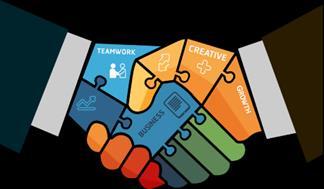
15

Overview
GCSE Design Technology
GCSE Design and Technology is an exciting course, which encourages innovation and creativity. This course has been designed to allow the development of practical skills using drawing skills, planning, hand tools and machinery, alongside an awareness of materials, sustainability, the environment, the design process and production processes.
Theory based lessons will be blended with practical lessons. You will be prepare for the NEA and exam by completing a series of smaller projects, using a range of materials, processes, design skill and hand tools, fixed machinery and CAD/ CAM.
You will study 3 sections over the two years. Each section focuses on key knowledge:
Section A
• New and emerging technologies
• Energy generation and storage
• Developments in new materials
• Systems approach to designing
• Mechanical devices
• Materials and their working properties
Section B
• Selection of materials and components
• Forced and stresses
• Ecological and social footprint
Section C
• Designing principles
• Making principles
Method of Assessment
Written exam (50% of GCSE)
This exam will assess you in the following areas:
• Core technical principles
• Specialist technical principles
• Designing and making principles
NEA (50% of GCSE)
This design and manufacturing task and will demonstrate skills in 6 areas; Research & analysis, design brief & specification, generating ideas, developing ideas, realising ideas and evaluation.
Awarding Body: AQA
Pathways:
Pupils can go on to study Design Technology, Engineering, or Construction amongst others. These can be at A level or as an apprenticeship. There are also routes into Systems & Electronics, Product Design and Architecture at University.

Careers:
There are a wide range of careers including; Engineering (mechanical, electrical and civil etc) Product Design, Robotics and the Automotive Industry.
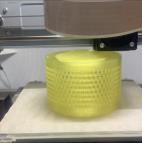



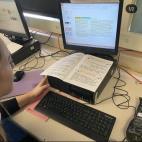
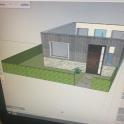
16

Overview
Languages are part of the cultural richness of our society and the world in which we live and work.
GCSE French
Method of Assessment
The exam is a combination of:
Writing: 25%
Speaking: 25%
Pupils learn to appreciate different countries, cultures, communities and people. By making comparisons, they gain insight into their own culture and society. The ability to understand and communicate in another language is a lifelong skill for education, employment and leisure in this country and throughout the world.
What does the course involve?
The language course builds upon work already begun in Key Stage 3. We will practice all 4 skills in order to prepare for the final exams at the end of year 11.
Pupils will learn how to:
• Communicate effectively in French in writing and speaking.
• Develop independence, adaptability, cultural awareness and resilience.
• Develop problem solving skills.
GCSE topics are:
• Identity and relationships
• Heathy living and lifestyle
• Education and work
• Travel and tourism
• Media and technology
• Customs and festivals
• Environment and where people live
Listening: 25%
Reading: 25%
All exams are externally marked and no dictionaries are allowed.
Awarding Body: to be confirmed
Pathways:
Sixth form A level study leading into full time study for a degree at university.
Careers: A modern language provides skills that are highly in demand with recruiters in a wide range of industries, all around the world. Examples of careers where a language is in high demand are teaching, journalism, travel and tourism services, publishing, banking, the Armed Forces and marketing.



Overview
The course is divided into three main themes:
1. Living with the physical environment
GCSE Geography
Method of Assessment
Paper 1: Physical Geography. 1hr 30 and worth 88 marks making up 35% of the total GCSE grade.
In this section study will focus on the challenge of natural hazards including volcanoes, earthquakes and tropical storms. Weather and climate change is also a focus, followed by physical landscapes of the UK, including coastal environments and rivers. Finally, the living world which includes ecosystems such as tropical rainforests and hot deserts.
2. Challenges in the human environment
This section covers population, urban growth, the changing economic world and global development. Resource management including the global distribution of food, water and energy and in particular detail the demand for water resources globally are also a focus.
3. Geographical applications and skills
This section involves the undertaking two different fieldwork tasks that will be assessed in the final examinations at the end of Year 11. Pre-released material is received 12 weeks prior to the examination which will be studied in lesson time.
Paper 2: Human Geography. 1hr 30 and also worth 88 marks, and 35% of the GCSE grade.
Paper 3: Fieldwork & Skills. 1hr 15, worth 76 marks and makes up 30% of the total GCSE grade.
Awarding Body: AQA
Pathways: A-level Geography, BTEC Travel and Tourism.
Careers: Environment consultant, pollution analyst, surveyor, town planner, teacher, health education campaigner, GIS specialist, surveyor, cartographer, risk assessor, travel writer/journalist, armed forces.



Overview
Choosing to study History will help pupils to understand the world we live in, the events of the past and will help to explain the challenges and opportunities of the world today. The course covers a variety of topics ranging from Anglo-Saxon England in 1060 to the end of the Cold War in 1991. Many transferable skills are developed and refined through the study of History.
• History teaches us about key events from the past that have shaped the society in which we live today. We will support you to develop a precise and specific knowledge of the topics we study. You will develop your skills of analysis looking at causes, consequence, similarity, difference, change, continuity and significance.
• History teaches us to look at different interpretations of key events. We firstly identify what these interpretations are but then look deeper into why they might be different and which, if any, we agree with. Additionally, we develop skills of source analysis. We draw information from sources and make judgements on their usefulness.
• History teaches us to communicate as historians and pupils must develop and refine techniques to share their understanding and conclusions.
GCSE History
Method of Assessment
GCSE History has 3 exam papers
Paper 1 focuses on Crime and Punishment 1000 present day. It is a 1 hour 15 minute exam and is worth 30% of the GCSE.
Paper 2 covers the Super Power relations and the Cold War, 1941-91 and AngloSaxon and Norman England, 1060-88. It is a 1 hour 45 minute exam and is worth 40% of the GCSE.
Paper 3 focuses on the USA 1954-751 where we study both Civil Rights and the Vietnam. war. It is a 1 hour 20 minute exam worth 30% of the course.
Awarding Body: Edexcel
Pathways: Sixth form A level study leading into full time study for a degree at university.

Careers: GCSE History will prepare you well for any career path that you choose to follow. The skills that we aim to develop of knowledge, analysis, source work and interpretations are valuable to any line of work that you may choose to
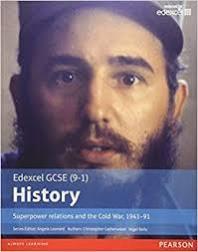


Overview
Level 1/2 Award in Hospitality and Catering
The Level 1/2 Vocational Award in Hospitality and Catering gives pupils experience of the vocational sector, as well as the opportunity to learn in a practical way.
The course is made up of two units:
Unit 1: The Hospitality and Catering Industry
Unit 2: Hospitality and Catering in Action
Pupils learn about the hospitality and catering sector, the environment in which people in this sector work, how they keep people safe and prevent food related ill health. Through their knowledge of the industry, pupils should be able to propose new hospitality and catering provision for specific locations. Pupils will then apply their learning in relation to front of house and kitchen operations to determine how the proposed hospitality and catering provision will operate efficiently, legally and financially viable whilst meeting the needs of their potential market.
Throughout the course pupils develop their practical and preparation skills in catering, such as knife, pastry and cake making skills whilst learning to cook basic, medium and complex dishes. They will learn to prepare and cook with a large range of ingredients including meat, fish and eggs. Additionally, pupils will learn how a dish can be planned and prepared to meet a client's nutritional needs, as well as how recipes can be adapted to meet special dietary requirements.
Method of Assessment
Unit 1 is externally assessed through a mixture of short and extended responses referring to the catering industry. This is worth 40% of their final grade.
Unit 2 is internally assessed in which they will complete a written course work in exam conditions. Pupils propose 4 dishes and plan for the production of 2 of these dishes. This unit ends with a 3-hour practical exam where these dishes are cooked and presented. This unit is 60% of their final grade.
Awarding Body: WJEC
Pathways:
Diploma in Professional Cookery or Hospitality and Catering Principles (professional cookery).

Level 3 courses including the Applied Certificate / Diploma in Food, Science and Nutrition and a Diploma in Hospitality and Tourism Management.
Careers:
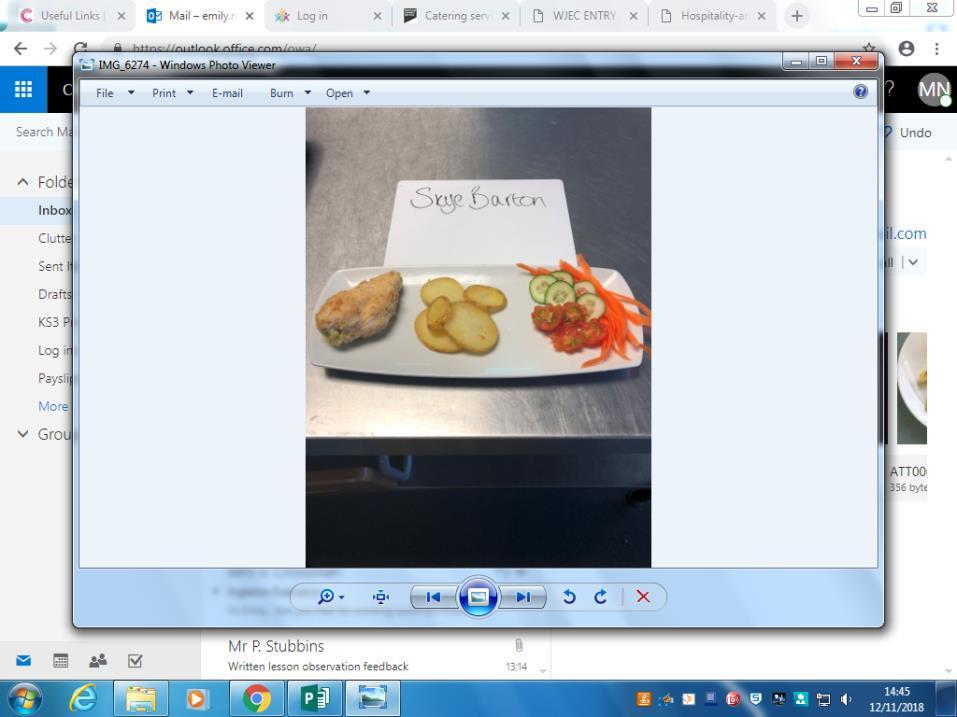


Overview
This qualification is made up of three components:
Component 1 Performing:
Pupils will work with their peri teacher on their performances through KS4 and will perform each half term. Pupils need to perform one solo piece and one ensemble piece. As well as traditional instruments, pupils can beatbox, rap or DJ. In total, the performances will be between 3 – 6 minutes long.
Component 2 Composition:
GCSE Music
Method of Assessment
For Components 1 and 2 you will undertake coursework (not exams). These will be internally marked and externally sampled. And in total will be worth 60% of your final grade.
For Component 3 you will sit the listening exam at the end of year 11, this is worth 40% of your final grade.
Pupils will have the opportunity to create two compositions. One will be a free choice and the other will be a brief set by the exam board. The free choice composition will be done in year 10 and the exam board brief will be released in September of year 11. Four choices will be given with a link to each of the areas of study in component 3. Pupils will create their compositions on MuseScore or BandLab. In total, the compositions will be between 3 – 6 minutes long.
Component 3:
Pupils will explore a range of music styles through time and identify key characteristics of the style. They will learn how to appraise music from different genres and know how to answer questions when they listen to a piece of music in an exam. The listening exam will take place at the end of year 11 and will last 1 hour 15 minutes.
Awarding Body: Eduqas
Pathways: A-level music. Level 3 courses in music and music technology.
Degrees in Popular Music, Music Technology, Music Composition and Music Business.
Careers: Composer, performer, music producer, industry professional.




Overview
GCSE Religious Studies
Students will be challenged with questions about belief, values, meaning, purpose and truth, enabling them to develop their own attitudes towards religious issues. Students will also gain an appreciation of how religion, philosophy and ethics form the basis of our culture. They will develop analytical and critical thinking skills, the ability to work with abstract ideas, leadership and research skills.
Component 1 focuses on the study of religions: beliefs, teachings and practices. Students will study two religions (Christianity and Islam) in depth and answer a mix of short and long answer questions in the exam. Students use sources of wisdom and authority from each religion and will need to refer to scripture and/or sacred texts where appropriate. Students then study the influence of the beliefs, teachings and practices studied on individuals, communities and societies.
Component 2 is thematic studies. Students should study a total of four themes, which can include relationships and families; religion and life issues; religion peace and conflict; religion, crime and punishment and religion, human rights and social justice.
Students will study religious teachings, and religious, philosophical and ethical arguments, relating to the issues within each theme, and their impact and influence in the modern world. Students will consider contrasting perspectives in contemporary British society on all of the thematic issues.
Method of Assessment
GCSE Religious Studies has 2 exam papers:
Component 1: 1 hr 45 mins worth 96 marks plus 6 marks for spelling, punctuation and grammar. 50% of the GCSE grade.
Each religion has a common structure of two five-part questions of 1, 2, 4, 5 and 12 marks.
Component 2:1 hr 45 mins, worth 96 marks, plus 3 for spelling, punctuation and grammar.
Awarding Body: AQA
Pathways:
Sixth form A level study leading into full time study for a degree at university.
Careers: GCSE Religious Studies will prepare you well for any career path that you choose to follow. The skills that we aim to develop of knowledge, analysis, critical thinking and research are valuable to any line of work that you may choose to pursue. Common careers linked to RS qualifications include: charity coordinator, child or youth worker, community developer, clergyperson, diplomat, human rights advocate, journalist, law, teaching, mediation, public policy advisor, social work


22

Overview
Languages are part of the cultural richness of our society and the world in which we live and work.
GCSE Spanish
Method of Assessment
The exam is a combination of:
Writing: 25%
Speaking: 25%
Pupils learn to appreciate different countries, cultures, communities and people. By making comparisons, they gain insight into their own culture and society. The ability to understand and communicate in another language is a lifelong skill for education, employment and leisure in this country and throughout the world.
What does the course involve?
The language course builds upon work already begun in Key Stage 3. We will practice all 4 skills in order to prepare for the final exams at the end of year 11.
Pupils will learn how to:
• Communicate effectively in Spanish in writing and speaking.
• Develop independence, adaptability, cultural awareness and resilience.
• Develop problem solving skills.
• GCSE topics are:
• Identity and relationships
• Heathy living and lifestyle
• Education and work
• Travel and tourism
• Media and technology
• Customs and festivals
• Environment and where people live
Listening: 25%
Reading: 25%
All exams are externally marked and no dictionaries are allowed.
Awarding Body: To be confirmed
Pathways:
Sixth form A level study leading into full time study for a degree at university.
Careers: A modern language provides skills that are highly in demand with recruiters in a wide range of industries, all around the world. Examples of careers where a language is in high demand are teaching, journalism, travel and tourism services, publishing, banking, the Armed Forces and marketing.



Overview
Cambridge National Certificate in Sports Studies
Cambridge National Sports Studies is a combined practical and theoretical learning experience.
The course encourages pupils to think for themselves about the study of sport and the application to real life practical sport, leadership and evaluation of the skills required there. You will study up to the minute topics affecting sport through the contemporary issues unit, both play and lead sporting activities, as well as having the chance to either explore the world of outdoor sport or the media.
You will complete 4 units. These are a mixture of team practical and theoretical units but will be practical as much as possible.
The units are;
• Performance and leadership in sports activities
• Contemporary Issues in sport
• Sport and the media
• Developing sports skills
You will study and perform in 2 sports and receive a grade out of 14 for each one. You will also have the opportunity to deliver a coaching session to your peers.
Method of Assessment
You will be assessed in an examination in the unit of Contemporary Issues in Sports.
The rest of the units are internally assessed and can range from Level 1 pass to Level 2 Distinction.
The course is 25% exam and 75% coursework.
Awarding Body: OCR
Pathways: A Level Physical Education and Sport, Level 3 Sport and Exercise Science, Level 3 Sports Development and Coaching.
Careers: Coach, physiotherapist, reporter, teacher.




Overview
GCSE Separate Sciences (Triple)
GCSE Separate Science in Biology, Chemistry and Physics (3 GCSEs)
Separate science builds on the key concepts required to have a good understanding of the world around us and delves deeper into different areas. Pupils studying separate sciences cover the same units as those studying combined science however there is additional content within these units to further stretch their understanding.
Content covered:
Biology 1:
Cells, organisation, infection and response and bioenergetics.
Biology 2:
Homeostasis, inheritance and ecology.
Chemistry 1:
Atomic structure, bonding, quantitative chemistry, chemical changes and energy changes.
Chemistry 2:
Rates of reaction, organic chemistry, chemical analysis, atmosphere and using resources.
Physics 1:
Energy, electricity, particle model and density, atomic structure and radiation.
Physics 2:
Forces, waves, magnets, space.
Additional Content
The additional content covered includes monoclonal antibodies, plant diseases, the brain and the eye in biology, nanoparticles, fuel cells, polymers and spectroscopy in chemistry and static electricity, nuclear fission and fusion, ultrasound, generators and space in physics.
Method of Assessment
Pupils will sit 6 exams in total. There will be 2 for each of the sciences covering the content outlined above.
Each exam is 1 hour and 45 minutes long and at the end pupils will be awarded 3 grades one for each of the sciences.
Awarding Body: AQA
Pathways:
A Levels in any of the scientific subjects, apprenticeships for companies such as BAE systems, EDF Energy, university degree courses in any of the sciences or medicine
Careers: nurse, midwife, mechanical engineer, aeronautical engineer, doctor.



25
Options Evening Arrangements
This will involve a presentation in the school hall about the options process and progression routes into further education and training to all parents and pupils, followed by a carousel of 20 minute subject presentations for parents and pupils to attend.
Main presentation: School Hall 6:00pm prompt start
Subject presentations: 6:20pm, 6:45pm, 7:10pm & 7:35pm. A bell will sound 5 minutes before the start of each presentation.


26
Subject Room Art and Design A1 French / Spanish A3 Business and Enterprise / Creative iMedia A4 Geography A5 History A11 Hospitality and Catering / Design Technology A6 Music A10 Religious Studies A7 Sports Studies A8 Triple Science A9




27
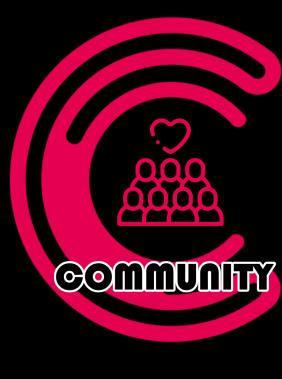

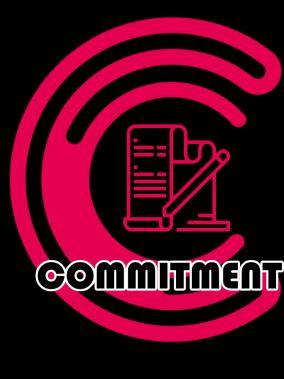










 Ms J Lilley Assistant Headteacher
Ms J Lilley Assistant Headteacher







































